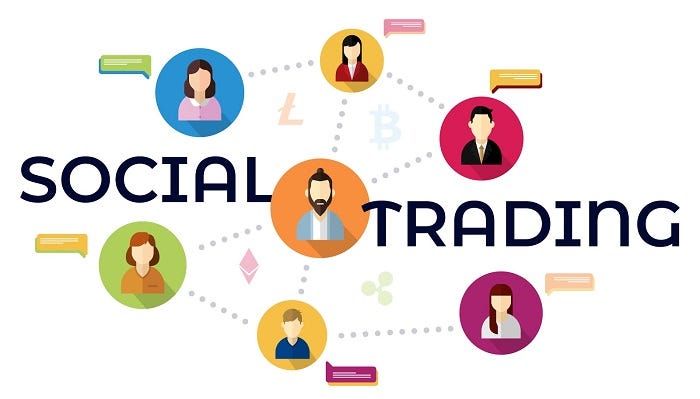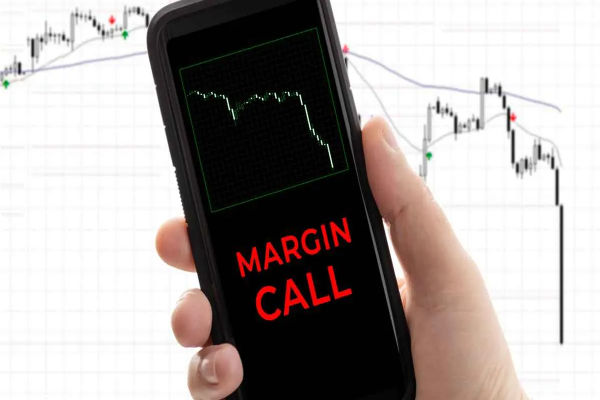In recent years, social trading has gained significant popularity among investors looking for alternative ways to enter the world of trading and investing. Unlike traditional forms of investing, it allows individuals to follow and copy the trades of experienced investors, making it easier for beginners to get started.
If you're new to the world of investing or trading, social trading can be an excellent way to learn the ropes while potentially earning profits from the experience and expertise of others.
What Is Social Trading?

Social trading, also known as copy trading or mirror trading, is a method of trading where individuals can automatically copy the trades of more experienced and successful traders. This allows beginners to mirror the strategies of seasoned professionals without needing to have deep knowledge or experience of the markets themselves.
The idea behind it is that you can potentially achieve similar financial outcomes without having to manage every trade yourself by following or copying a skilled trader,
Social trading platforms typically provide a marketplace where traders can share their strategies and insights, allowing others to follow their trades or interact with them to discuss strategies. It's a way for individuals to tap into the collective intelligence of the trading community and learn while they earn.
How Social Trading Works
Social trading platforms function as financial networks where traders share insights, strategies, and performance metrics. The key components of social trading include:
Copy Trading: This feature enables users to replicate the trades of successful investors automatically. When a professional trader executes a trade, the same action is mirrored in the follower's account.
Signal Providers: Experienced traders offer their trade strategies as signals others can subscribe to. Signal providers are ranked based on performance, risk levels, and consistency.
Community Interaction: Many social trading platforms incorporate social networking features, such as forums and discussion boards, where traders exchange market insights.
Portfolio Transparency: Social trading networks provide detailed statistics on traders' historical performance, allowing followers to make data-driven decisions when selecting whom to copy.
How to Get Started?

1) Choosing the Right Social Trading Platform
Selecting the right platform is crucial for success in social trading. Before choosing, you must consider several factors, including platform reliability, available assets, fees, and user experience. Some popular social trading platforms include eToro and ZuluTrade.
eToro: One of the most widely used platforms, eToro offers an easy-to-use interface, a large community of traders, and an advanced copy trading feature.
ZuluTrade: This platform provides a ranking system that helps users choose traders based on their risk appetite and performance history.
2) Setting Your Goals and Risk Tolerance
Before you start following other traders, it's crucial to define your own investment goals and risk tolerance. Social trading might seem like a passive investment strategy, but it's essential to know your objectives and how much risk you're willing to take.
First, determine your investment goals. Are you looking for long-term growth, short-term gains, or to generate passive income? Your goals will affect the type of traders you should follow. For instance, if you're looking for short-term profits, you might want to follow traders on day trading or swing trading. If you're more interested in long-term growth, you may prefer traders on a buy-and-hold strategy or invest in more stable assets.
Next, assess your risk tolerance. Social trading platforms usually provide information on a trader's risk level, but it's essential to match that with your comfort level. High-risk traders may offer higher rewards but can also result in more significant losses. On the other hand, low-risk traders typically provide more stable returns, but the potential profits may be smaller. Balancing your goals with your risk tolerance will help you choose the right traders to follow.
3) Choosing a Suitable Trader
Once the account is active, the next step is to deposit funds. Most platforms offer payment options, including bank transfers and credit cards.
After funding the account, users can browse the list of traders available for copying. Before following them, it is essential to analyse a trader's past performance, risk levels, and style. Once a trader is selected, users can allocate a portion of their capital to copy their trades automatically.
Most platforms allow customisation of trade copying, enabling users to set stop-loss limits, trade sizes, and maximum investment per strategy. These risk management features ensure better control over trading activities.
4) Learning as You Go
Lastly, one of the unique aspects of social trading is that it offers a great learning opportunity for beginners. As you follow and copy traders, you'll begin to see how they make decisions, manage risks, and navigate different market conditions. Many platforms allow you to interact with other traders through comments, private messages, or community forums.
As you gain more experience, you'll develop a better understanding of the markets and trading strategies. You may even begin to adjust your portfolio by copying new traders or tweaking your allocation of funds. Social trading is an excellent way to learn in a low-pressure environment while potentially earning money simultaneously.
Future of Social Trading
The future of social trading looks promising as technology continues to advance. Artificial intelligence and machine learning are expected to enhance trade analysis and risk management.
Blockchain technology also will impact social trading by increasing transparency and security. Smart contracts may automate trade copying, reducing the reliance on centralised platforms.
Regulatory developments will also shape the future of social trading. Governments worldwide are implementing stricter regulations to protect investors and ensure fair trading practices. As the industry evolves, traders should stay informed about new rules and technological advancements.
Conclusion
In conclusion, social trading offers an accessible and effective way for beginners to enter the financial markets. By leveraging the expertise of experienced traders, users can reduce the learning curve and improve their trading success.
However, it is crucial to manage risks carefully, choose the right platform, and adopt diversification strategies. By doing so, you can enjoy the potential rewards of social trading while gaining valuable experience altogether.
Disclaimer: This material is for general information purposes only and is not intended as (and should not be considered to be) financial, investment or other advice on which reliance should be placed. No opinion given in the material constitutes a recommendation by EBC or the author that any particular investment, security, transaction or investment strategy is suitable for any specific person.








